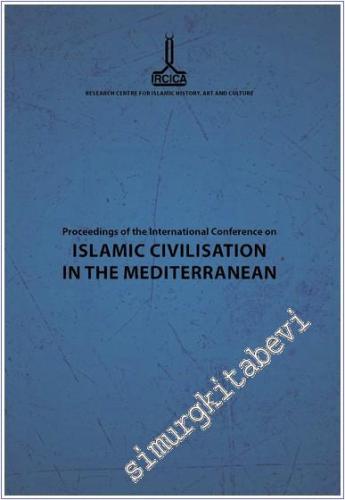#smrgKİTABEVİ Proceedings of the International Conference on Islamic Civilisation in the Mediterranean: Nicosia - 2013

Prepared for publication by: Zeynep Durukal, Salih Sadawi, Cengiz Tomar Istanbul, 2013, (in English, Arabic and Turkish)
A congress was organized jointly by IRCICA and Near East University, Nicosia (Northern Cyprus), on the theme “Islamic Civilization around the Mediterranean”, in December 2010. Papers contributed by scholars and researchers from all continents around the Mediterranean glimpsed at life in the region at different time periods with focuses on Muslims' presence and participation in the various processes including the development of cities, art and architecture, science and education, governance and administrative practices.
Islam, unlike Christianity and Judaism, was not born in the vicinity of the Mediterranean but reached it by mid-7th century. Then within its first century Islam spread in the southern, eastern and western shores of the Mediterranean Sea. In later centuries, commercial and cultural exchanges between Muslims on one hand and Europeans on the other grew uninterruptedly, at times of conflict (such as the Crusades) as well as of peace. This contributed to enriching the cultural diversities of the civilizations that evolved around the Mediterranean. The bouquet of good quality studies contained in the book reflects the scope and depth of this multicultural legacy and its Islamic component that is diffused throughout the region.
Prepared for publication by: Zeynep Durukal, Salih Sadawi, Cengiz Tomar Istanbul, 2013, (in English, Arabic and Turkish)
A congress was organized jointly by IRCICA and Near East University, Nicosia (Northern Cyprus), on the theme “Islamic Civilization around the Mediterranean”, in December 2010. Papers contributed by scholars and researchers from all continents around the Mediterranean glimpsed at life in the region at different time periods with focuses on Muslims' presence and participation in the various processes including the development of cities, art and architecture, science and education, governance and administrative practices.
Islam, unlike Christianity and Judaism, was not born in the vicinity of the Mediterranean but reached it by mid-7th century. Then within its first century Islam spread in the southern, eastern and western shores of the Mediterranean Sea. In later centuries, commercial and cultural exchanges between Muslims on one hand and Europeans on the other grew uninterruptedly, at times of conflict (such as the Crusades) as well as of peace. This contributed to enriching the cultural diversities of the civilizations that evolved around the Mediterranean. The bouquet of good quality studies contained in the book reflects the scope and depth of this multicultural legacy and its Islamic component that is diffused throughout the region.






















